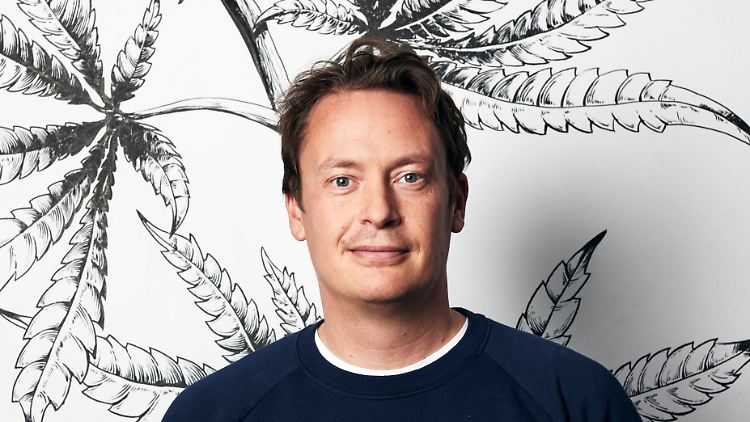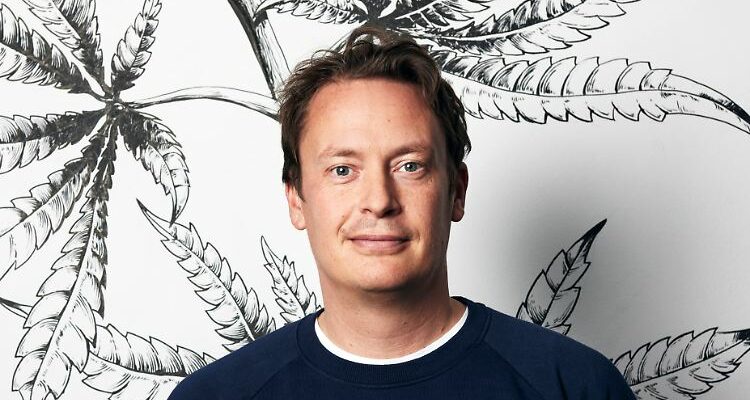The end of the cannabis high?
“Many companies will disappear from the market”
January 23, 2024, 4:17 p.m
Germany. The land of poets, thinkers and stoners! You read that right. According to a study, 8.8 percent of all adults aged 18 to 64 used cannabis at least once in 2021; that’s around 4.5 million people. This makes cannabis the most commonly used illegal drug in Germany. A law drawn up by the traffic light coalition to legalize cannabis was actually supposed to come into force on January 1st. Experts assumed that up to 800,000 tons of the drug could then be sold legally in Germany per year. A huge market. A number of startups invested heavily and were in the starting blocks. But: There is not much left of the government’s big plans.
Instead, from April 1st, adults aged 18 and over will be allowed to possess 25 grams of cannabis in public spaces and up to 50 grams of home-grown cannabis in private areas. Up to three plants may be grown privately. But there are no sales in specialized stores, like in the Netherlands. However, the necessary Bundestag resolution on these traffic light plans is still pending.

Finn Hänsel is the founder and managing director of the cannabis startup Sanity Group.
(Photo: Sanity Group)
The Sanity Group is one of the best-known cannabis startups in Germany. Behind it is the founder Finn Hänsel. His business consists of two pillars. The medical cannabis and the consumer division, which consists of cannabis products in the cosmetic sector and recreational cannabis. He had expected significantly more for the latter. Where does the hype come from? How do you as a cannabis startup founder deal with the current situation? How do you manage to get prominent investors like Snoop Dog or Klaas Heufer-Umlauf on board and what happens next? Finn Hänsel reveals this in the ntv podcast “Startup – Now be honest!”.
ntv.de: Tell us a truth that you have kept secret so far.
Finn Hansel: What very few people probably know: I have been a cannabis patient myself for a few years because I have suffered from ADHD (attention deficit disorder) since I was a teenager. At some point my family doctor said: You’re in the industry. Have you ever tried your own product? And since I’ve been using it, I have to be honest, I’ve been able to cope very well with my ADHD.
Now you are not only relying on cannabis as a medical product, but also want to sell it as a recreational product in the long term. You recently opened Europe’s first specialist shop for legal THC-containing cannabis products in Switzerland. What’s behind it?
Switzerland has been dealing with the topic of cannabis for significantly more years than we in Germany. The stigmatization of cannabis is significantly lower there. Depending on the results of this pilot project, one would then like to shape future cannabis legislation.
What is the feedback so far?
People couldn’t believe that they could now actually walk into a specialty store, open the door and buy cannabis. I think a lot of people were almost a little afraid that the “Do you understand fun?” is and they end up coming out and the police are waiting.
You would certainly have wanted that in Germany too. Cannabis legalization was the prestige project for the traffic light coalition. But the whole thing has come to a standstill. How do you deal with this as an entrepreneur?
The traffic light wrote the topic of cannabis legalization into the coalition agreement at the time. The euphoria in the industry was boundless. And then it started with the government always saying with a delay: The draft is not coming now. But another key points paper and another key points paper. A courageous overall concept for legalization was suddenly broken down into pieces. Today we are faced with the point that legalization as a whole will not happen. It is difficult for a company like ours to operate in such a mixed situation. Where do we invest money? Are we already preparing for any future developments? Let’s wait? Do we continue to spend money or do we prefer to save and keep the money together? These are really, really critical questions that we have to ask ourselves every day.
You also have to face the headwinds, which have become increasingly strong recently. Ultimately, cannabis legalization poses dangers. In December 2023 there was a letter to the parliamentary groups in which numerous doctors and teachers’ associations as well as the police union classified the planned cannabis law as a danger and called for them not to agree to Health Minister Lauterbach’s plan. What do you think?
The parties on the letter have very different motives. The Association of German Criminal Police Officers, which is also the author of the letter, has been absolutely in favor of legalization for several years. The law is probably not consistent enough for them. The cannabis law does not fully achieve the goal of relieving the burden on politicians, the police and the judiciary. Not every consumer becomes a club member now. Not every consumer will put a plant on their balcony.
People will continue to shop in the illegal market, no tax revenue will continue to flow, illegal and organized crime will continue to benefit and in the end you will still have bureaucratic monsters because the authorities have to control things. Who is growing how many plants at home now? Who carries how much with them? Are the clubs all properly regulated? And in the end, I think that from the perspective of many people who were originally positive about legalization, the law as it is now in the Bundestag doesn’t really get to the heart of the matter.
The letter states that cannabis legalization contradicts international knowledge and endangers the health of the young generation.
I would disagree with that. Just the Netherlands as an example. You can buy cannabis on every street corner there since the 1970s and 1980s. Nevertheless, as a percentage of the population, fewer people in Holland consume cannabis than in Germany, even relative to the population and especially among the younger generation. Simply making cannabis available does not automatically lead to an increase in consumption. The same was the case in Colorado. In the first few months after legalization, consumption went up. After that, it fell back below the original threshold for consumer legalization. So that means no one wants to legalize cannabis for young people. The problem is that the law as it stands now does not clearly regulate when cannabis is legal, who can use it, and where it can be purchased.
What does this mean for the many cannabis startups that started out with high hopes of full legalization in Germany?
Many cannabis startups have raised money and hired people based on this great hope, but of course they are now disillusioned. At the same time, we generally have a situation where investors are not lining up to invest at all. That is, the combination of the uncertain cannabis law and, on the other hand, very cautious VCs [Venture-Capital-Gesellschaften, Anm. d. Red.] and startup investors, this is making this very difficult for many startups. I expect that in the next three to six months there will probably be a lot of players disappearing from the market.
With Finn Hansel said Janna Linke. The conversation has been shortened and smoothed for better clarity. You can completely do it in the ntv podcast “Startup – now to be honest” listen.
What lies behind the dazzling facade of the startup scene? Janna Linke knows it. In the podcast “Startup – Now Honestly” she takes a look behind the scenes of the start-up scene every week and talks about topics that are currently making headlines. She classifies, asks questions. Personal, honest and with real added value. To do this, she talks to personalities from the scene, experts and gives you an absolute all-round view! Together you will delve deep into the startup world!
“Startup – now honestly” – the podcast with Janna Linke. On RTL+ and everywhere there are podcasts: Amazon Music, Apple Podcasts, Spotify, RSS feed
